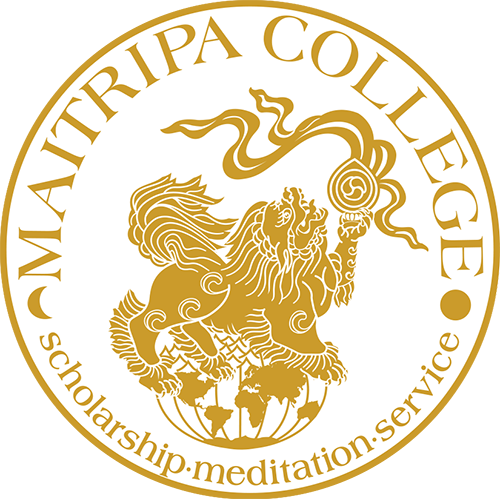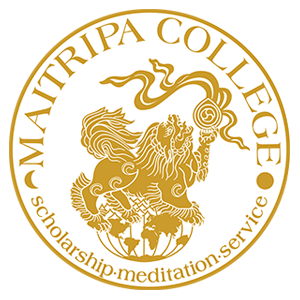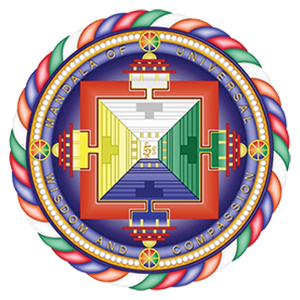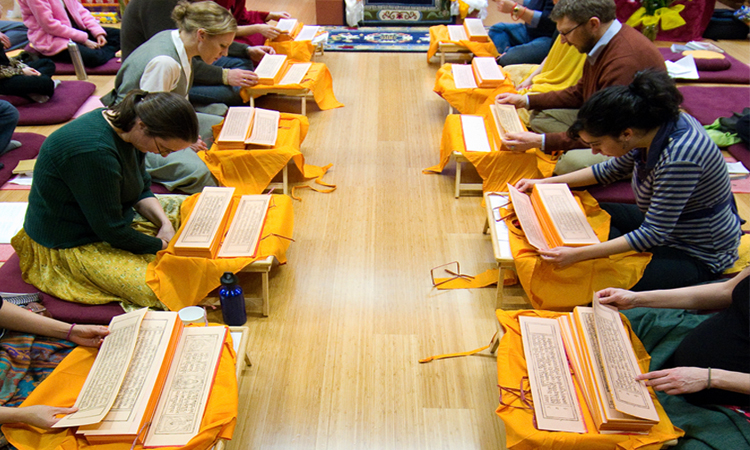
Advanced classical Tibetan language students display their proficiency during a group reading from elements of the Tibetan Buddhist canon (the Kangyur)
Canonical Languages & Literature
The Canonical Languages and Literature concentration requires a minimum of four semesters of classical Tibetan coursework and four credit hours of coursework in close reading of a Buddhist text in translation. Courses which satisfy the literature requirement will be indicated in the course catalogue. Other canonical languages, such as Sanskrit or Chinese, also satisfy the language requirement when available.
Maitripa College is committed to training students in Classical Tibetan from beginning to advanced levels – from learning the alphabet to producing translations. Our mission and vision to develop an accredited Buddhist University offering higher education guided by the principles of the Buddhadharma requires that we also contribute to the preservation of Tibet’s rich textual traditions and increase their accessibility in the West. By learning to read and translate Tibetan, Maitripa students have the opportunity to receive the wisdom of these teachings directly in their original language, study with western and Tibetan linguists, learn to recite prayers and practices in Tibetan, and take advantage of the rare opportunity to read classic texts with a Geshe Lharampa and lineage holder, Yangsi Rinpoche. This is also exceptional preparation for pursuing doctoral studies and research in any area of Tibetan studies. Please see Classical Tibetan Language Studies links for more information.
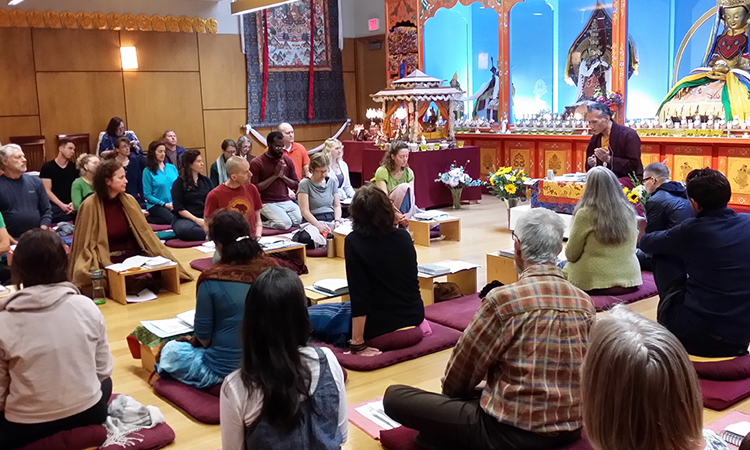
One-Day Tara Meditation and Practice Retreat with Yangsi Rinpoche in the Maitripa College Jokhang Meditation Hall
Spiritual Formation
The concentration in Spiritual Formation enables students to devote considerable focus to mentored meditation, both in the classroom and during structured retreat opportunities. Meditation and ritual practices that fulfill the minimum credits must demonstrate educational efficacy through mentorship, educational goals, and evaluation.
Three meditation (MDT) elective courses (in addition to the minimum degree requirements for the MA or MDiv) must be taken, in which the course is designed to instruct students in practices for specific educational goals, including the cultivation of spiritual qualities or skills, gaining insight into philosophic concepts, or learning content. A minimum of one additional credit hour (100 hours of mentored meditation) must be earned through participation in retreat.
Retreats may include on-site or residential Maitripa-sponsored retreats and, where approved and in consultation with Yangsi Rinpoche, may also include structured and supervised retreats to be completed by the student privately. In some cases, and with sufficient documentation, students may petition for limited recognition of retreats and practices completed in other lineages or at other centers.
